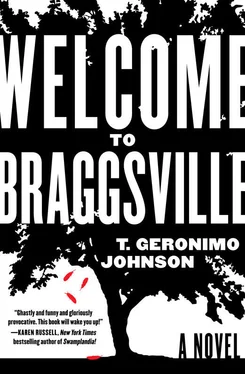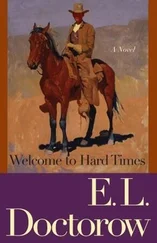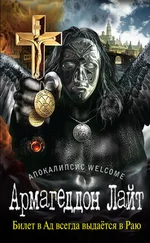Understand, please, that she calls him… she calls him not… she calls him. This is what he has learned: (1) Fridays at 8:45 P.M. the Chelseas dinner at O’Malley’s (The Irish and Arabic love their apostrophes. Sincerely, Louis); (2) Her father orders tuna-tenderloin-rare-as-the-day-it-was-born-no-sides; (3) her mother orders my-usual-Raúl-the-spinach-salad-hold-the-bacon-as-far-away-as-possible-because-to-even-lust-in-one’s-heart-after-such-delectable-fat-is-to-dangerously-excite-adipose-tissue; (4) Candy-Pandy orders yes-another-black-bean-burger-double-swiss-add-thousand-island-yes-I-know-this-is-the-best-steakhouse-in-central-Iowa; (5) Candice is Candy-Pandy, Candy Bear, Can-Can, and, when the parental units are inflamed, Marianne; (6) Her mother responds to most of her father’s statements with, That notwithstanding, dear, have you considered …; (7) When the parental units ask what Candy-Pandy is listening to on her — all giggles— meepthree player, a trendy performer of her own generation earns an earbud exchange, but any band more than twenty years old does not, so on the fifteen-minute drive to the best steakhouse in central Iowa she often claims Nirvana or R.E.M. in ear, usually the former because Cobain polishes her mother’s voice brighter than Uncle Roy’s nose and triggers her father’s warm sense of generational proprietorship: Don’t you millennial hucksters have your own rebels? All of this Daron learns not because she calls him. She calls him not. They remain officially incommunicado. Her derrière, though, has different ideas, and dials him up one evening, establishing a tradition, and for three weeks continues to ring Daron from the backseat of the Chelseas’ hybrid SUV every Friday at 8:25 P.M.
How does he know it’s a booty call, a derrière dial in that literal sense, that literally innocuous sense, that innocuous and damned disappointing sense? The first time, hearing only scuffling fabric within reach and New York accents at dreamy remove, in the most solemn of whispers he asks: Is this a butt dial? Her answer: Cough-cough. Again sober of tone, he asks: Does two coughs mean yes? Her answer: Cough-cough. Her mother asks: Do you need a lozenge, a Ricola throat drop, Candy-Pandy? Her answer: No. He asks: What’s the code for no? Her answer: a throat drop crashing into teeth, the wet zysk of cheeks pinched by citrus. She clears her throat. It’s settled: two coughs for yes, one throat clearing for no, accompanied by Nirvana. The first two words in their private language!
But what to tell her? What is a tell? An unconscious self-betrayal? An acknowledgment of one’s pole position? The rollover that offers the vulnerable underbelly? (By Louis’s count.) An archeological site built up over centuries of cyclical human occupation and abandonment? (Daron’s favorite.) Is it to reveal? Confess? Surrender? Does the tell require a listener? He is not sure. And so while imagining Candy-Pandy seated behind her mother, earbuds at ready, soft gaze ignoring the light spraying across the window, wearing a white tracksuit and flip-flops with pink roses buttoned atop the thongs, he tells her… he tells her… not.
He tells her… about his life now… about how it recalls the tedium of summers after he stopped hunting and before he learned to drive, except there is no job to which he need be ferried. He tells her there are only two hunts he still enjoys: the raspy Braille of old book covers and the whisper of vinyl drawn from sleeves. But no more. The record stores, video stores, bookstores, those temples of wisdom whose employees he’d so envied were extinct, themselves now tells . Those clerks who could name the third track on Nevermind or tell you that Breed was originally titled Imodium —without quite sneering — are gone the way of the dodo bird or sliced bread in Berzerkeley.
All the jobs he wants are *POOF*, and it’s his fault. Killed, , he knows, by him and his generation, and all their online shopping and file sharing. What remains are a paltry assortment that rouses indignation, a long dozen of those very occupations that he’s always feared most. What fun! Oh, he applies at each, and more. His father sees to that, in truth oversees, watching him complete and submit the applications for the adventure of a lifetime: cashiering at the big cold box, stocking at Pilot, burgering at McD’s, as the manager called it. Cheering squads at the big cold box, employee appreciation parking lot picnics every first Friday at Pilot, community service opportunities at McD’s. Each of the businesses self-identifies as a three-sun solar system, as employee-centered, community-centered, and customer-centered. These are occupations in the martial sense of the word, takeovers by invading forces. Every organization, every single one, Daron worries himself, orchestrates a silent competition with the church; they want not employees, but practitioners, apostles, acolytes — not workers, but worshippers. Between this observation and his reflections on school, he concludes that everyone advertises for the mind but expects you to bring the soul.
He tells her… that reporters occasionally stalk about, that Agent Denver has stopped by a couple more times, always in his signature blue windbreaker, the arrival of his black sedan marked by thin smiles and his departure by rock salt, but that he, Daron, remained distant, even after Denver suggested that his father’s transfer to the night shift wasn’t voluntary. That was no extraordinary prescience by Daron’s mind. Charlie and Hirschfield had both said it might happen, and he had not believed them either, even though he knew Charlie to be wise beyond his years.
He tells her… not… that when he was in the garage this morning, he tripped over a stack of unfamiliar boxes, inside of which were enough econ and finance textbooks to choke Warren Buffett. As he was sorting through them, his mother came from behind without warning, scaring the Big Blue Jesus out of him, asked why he was cold-nosing around the garage. He’d no answer. It was as though he was slapped awake after blacking out, and couldn’t piece together his reason for being out there or even how he’d arrived. He asked about the textbooks, and she replied, Think you’re the only one who reads?
Yeah. Maybe. No. But textbooks, Mom? And these books, he’d noticed with discomfort, were very well read: highlighter marks, underlining, exclamation points, question marks, lots and lots of big question marks as if the reader were preparing to cross-examine the author, blatant interrobangs, and more dog-ears than Iditarod, or better yet, the San Francisco SPCA, which was a no-kill shelter.
He tells her… not… that his mother then admitted to being in school online, and wanted to surprise him.
With what? That’s weird. You’re too old to get a new job. What do you need school for?
Same as you.
You have a job.
That’s not why you go to school.
Then why?
To learn?
What? What have you learned?
That’s the point, D-D, she snapped twice, that’s the point.
He tells her… he tells her… not… about how his mother faced him, leaned against the pressure-treated four-by-four support as if it were comfortable, crossed, then uncrossed her arms and legs, another holdover from those counseling sessions. Open body, open heart, open mind, Dr. Ventura always advised. Don’t you remember that rhubarb with your father? You nearly came to blows. He fixed you for June and July at the mill, but you howled louder than a drunk monkey about summer camp. He said you needed to make money. She pointed at him. You said you needed skills. He said you needed work. But you said you should learn, needed to learn, that you wanted a job you couldn’t figure out how to do just by showing up. Remember that? You wanted a job you had to think about. You even used his own advice against him: Never be the first one to ask her to the prom. That went over like a poke in the eye, burned him worse than a chow-chow in June. Remember?
Читать дальше
Конец ознакомительного отрывка
Купить книгу












